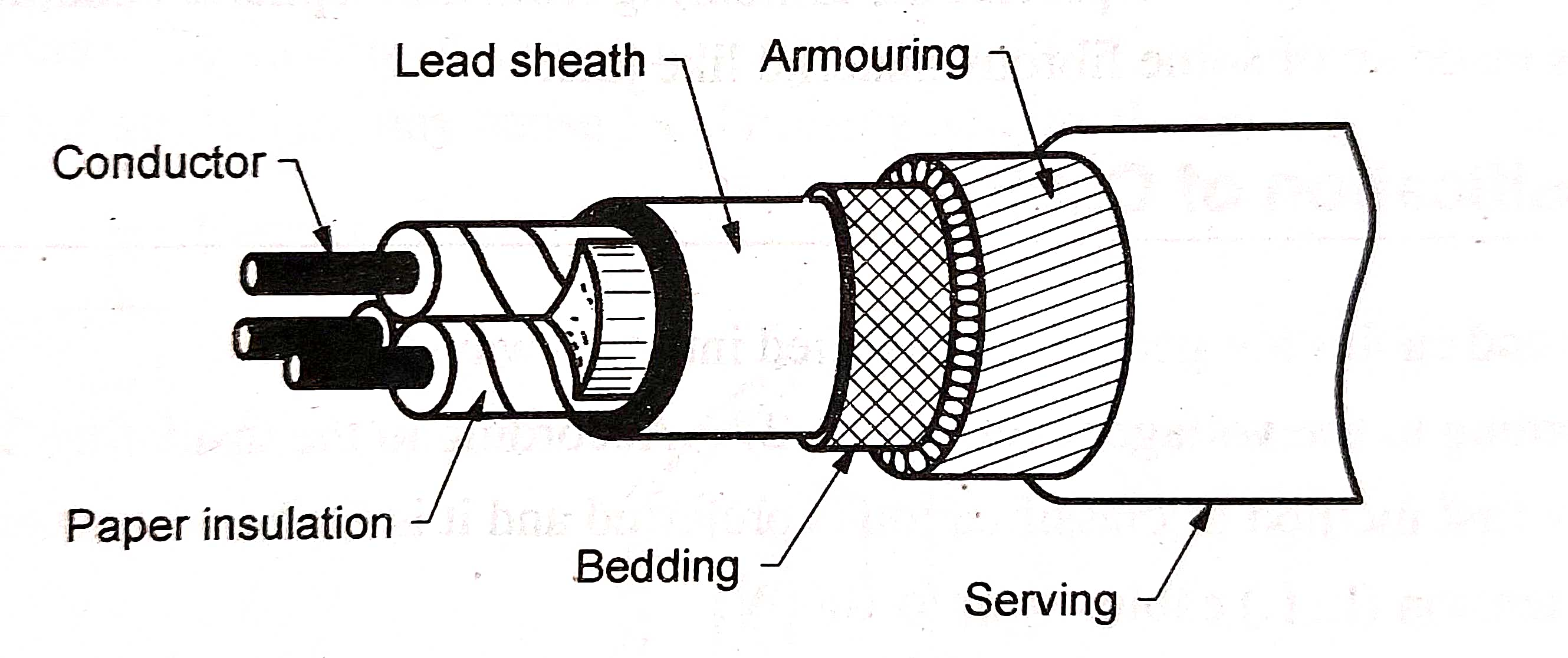Fig. shows the construction details of the cable.
It consists of following parts:
1) Conductors:
Conductors used for cables are generally made up of tinned copper or aluminum.
To provide the sufficient flexibility conductors are used in stranded form.
Cable may consists of one, two, three or four conductors depending upon the service required.
2) Insulation :
As the cable is laid underground conductor has to be provided with sufficient thickness of insulation.
The type and thickness of insulation depends upon the voltage level.
Insulating materials should provide the following properties :
1) High insulation resistance to avoid leakage current. 2) High mechanical strength.
3) Non porous.
4) Chemically inert.
5) High dielectric strength.
6) Non inflammable.
Following are the different materials used for cable insulation :
1) V.I.R. i.e. Vulcanized India Rubber.
2) Rubber
3) P.V.C. i.e. Polyvinyl Chloride.
4) Impregnated paper.
5) Varnished cambric.
3)Metallic sheath :
As the cable is placed under ground, soil may present, moisture, gases and some other liquid.
Therefore to protect the cable metallic sheath made up of lead or aluminum is provided over the insulation.
4)Bedding :
to protect the metallic sheath from corrosion and some mechanical injury, bedding is provided.
It is made up of some fibrous material such as jute or hessian tape.
5 Armoring :
Amounting is used to protect the cable from mechanical injury while handling.
It consists of one or two layers of galvanized steel wire or steel tape. Utenos
6) Serving:
Serving is provided to protect the armoring from atmospheric conditions.
It is made up of some fibrous material like jute

